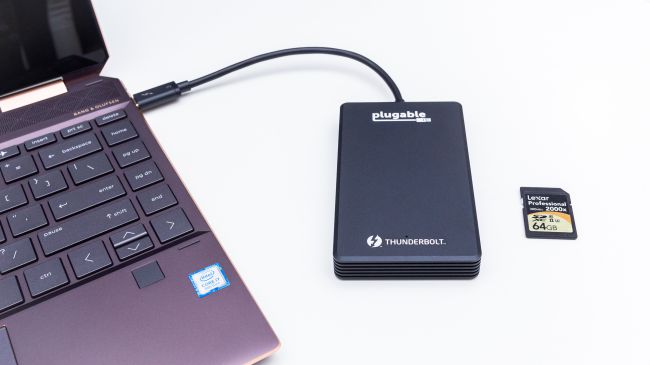How to Buy Gifts for the Tech Enthusiast in Your Life
Picking the right tech for an enthusiast is hard. Let's walk through the dos and don'ts.
Whether you’re a PC building veteran or you have no idea what a GPU is, finding the right gift for a tech enthusiast is a unique challenge. The marketplace is filled with thousands of components, peripherals and accessories, which makes it incredibly difficult to choose something for another tech fanatic that they'll actually need or will like.
If you don't feel like shopping yourself, we've already curated some picks for you for various types of tech enthusiasts, whether you're looking for the best gifts for gamers, the best tech stocking stuffers (cheap alert!), the best gifts for PC builders, tech gifts for makers or the best STEM toys.
Below are five tips to help you shop for the tech enthusiasts in your life.
1. Don't buy internal components, unless your giftee asked for them by name. Just as you wouldn't get someone a dog or cat, you shouldn't buy them a motherboard or graphics card for their PC. Choosing major components is just too personal of a decision for you to make for someone. It's also quite possible that you’d end up getting them a part that isn't compatible with the rest of their system.

2. Your giftee can never have too many of these items. If you're worried about buying something that your friend already owns, the following 'stock up on' gifts are always a sure bet, because tech fans always need more of them:
- MicroSD memory cards: Good for storage expansion on mobile devices (including the Nintendo Switch) and some laptops, these also serve as the main drive for a Raspberry Pi.
- External hard drives / SSDs: Tech enthusiasts are constantly running out of room for all of their movies, games, photos or for backing up their system. You can find our favorite choices for external storage on our breakdown of the Best External Hard Drives and SSDs. And if you're not so tech-savvy yourself, keep in mind that when it comes to hard drives versus SSDs, SSDs are speedier and more reliable but more expensive.
- Toolkits: Even if your friend has some nice screwdrivers, the can probably use a few more tools.
- USB cables and dongles: If your friend has a phone that charges with a USB-C port, they definitely have a USB-C charging cable already. But do they have separate ones for work, home, the car and their travel bag? You can say the same of SD card readers, portable USB hubs and any adapter.

3. Consider a tech gift card: At first blush, giving a gift card may seem like a cop out. If you just hand someone cash or an Amazon gift card (as good as cash in many cases), they could spend it on anything, making the present very impersonal. However, if you give a card for a site that specializes in tech such as Newegg, you're giving them both freedom to choose and a directive to spend it on tech. The same goes for credit on gaming services like Steam.
4. Avoid instructional (paper) tech books: Yes, your giftee may be learning how to program in C# or how to setup a Raspberry Pi for the first time, but enthusiasts usually prefer to learn from online materials, most of which are free. Just imagine reading about programming in a book and having to type all the code in manually when you could more easily read about it online and copy and paste the code into your project. However, books about the history or backstory of tech are welcome.
Stay On the Cutting Edge: Get the Tom's Hardware Newsletter
Get Tom's Hardware's best news and in-depth reviews, straight to your inbox.

5. Fan gifts are always appreciated: T-shirts, hats, desk toys, bobble heads -- these are tech gifts too, provided that they celebrate technology. If your giftee loves a particular game franchise, it's easy to find related merch. But you can also get products for fans of particular brands like AMD, Nvidia, Intel, Asus and Gigabyte. For example, Dell gaming brand Alienware sells this nifty hoodie with a a glowing blue light in it.
-
littlejimm I would highly contest #4 as that is personal preference. I personally prefer a paperback to reading off a screen any day of the week when I'm specifically trying to learn and focus on somethingReply -
bluemax2006 I think a lot of the issue involved is getting to know the person you are buying a present for. That way you know if the screen or software or air duster will work. In general, this is a good list. I second SSKOIC's advice of recommending a cleaning tool / wet tissues.Reply -
ynhockey I disagree that someone can't have too many Micro SD cards or cables/adapters. I have too many of both and have given some away occasionally. Plus, to me either of these seems like a really cheap gift. Even if you get some super-expensive golden audio cable or whatever (why?), it just feels like an underwhelming present. IMO if you want a tech gift at a low price point, get software (esp. games on Steam). There are discounts on good software/games everywhere and all the time.Reply -
ET3D I disagree with a lot of what was said (for example, I don't want hardware branded clothes / hats etc.), but my main issue with this article is that it looks pretty pointless, because, after all, it's on Tom's, so the people who read it are tech enthusiasts.Reply
Frankly, as a tech enthusiast, I prefer not to get tech gifts. The gift card idea is probably the best. If you insist on giving me something techy, give me some cute, cool tech that's unrelated to PCs. -
cryoburner Reply
While I kind of agree that a physical instructional book may be preferred in some cases, I would also kind of agree with the article that they might not be the best option as gifts, especially if the person buying the gift doesn't know exactly what the "tech enthusiast" would find useful. Unless the person buying the book is already somewhat knowledgeable about the subject, and has a good idea of what they are interested in learning about, it could be easy to end up getting something that's not a particularly good fit.21409208 said:I would highly contest #4 as that is personal preference. I personally prefer a paperback to reading off a screen any day of the week when I'm specifically trying to learn and focus on something
Overall, I found the advice in this list to be fine, though I'm not sure one can never have too many cables, adapters and so on. I'm sure that Type-C USB adapters may be really useful eventually, but as of now, USB-C is still pretty uncommon. And devices tend to come with the appropriate cables, so most will likely end up with a pile of them laying around.
